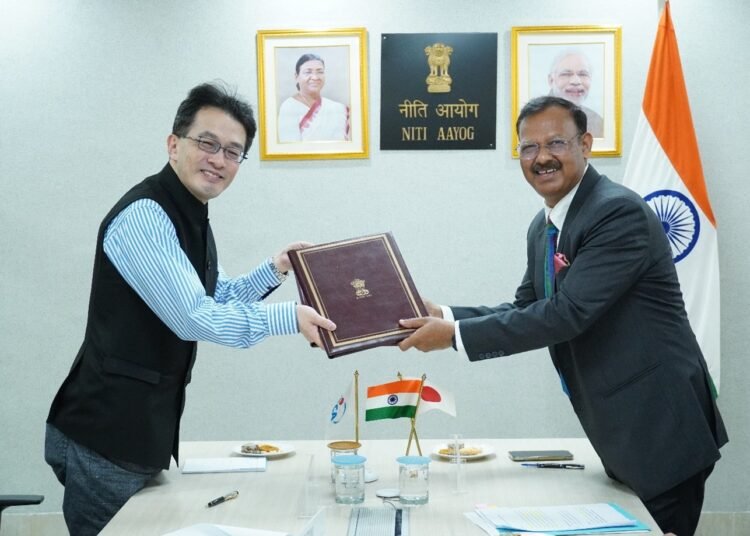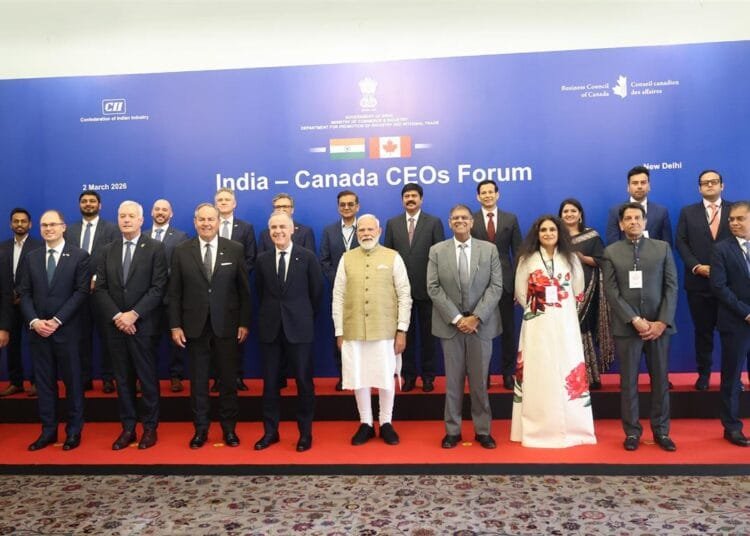India attracted $30bn during COVID-19, says Kant
Kamal Bali, President and Managing Director, Volvo Group, has identified five issues from the perspective of a Multi-National Corporation (MNC) at the CII National MNC Conference 2020.
The change to customs procedures on input imports from the Free Trade Agreement (FTA) partners is causing greater delays, he pointed out.
Fast-tracking bilateral Advanced Pricing Agreements (APAs) is also important. The conflict between transfer pricing and customs, Dispute resolution on tax litigation and other GST reforms were the final issues, he highlighted, acknowledging that a lot has been done on the latter.
MNCs have a vital role to play in helping make India the 2nd manufacturing hub and a significant part of the global value chain and supply chains in the current challenging situation, said Amitabh Kant, CEO, NITI Aayog.
India is the only country to attract US$38 billion worth of FDI during the COVID period this year, Kant told the Plenary Session on Enabling Policy Environment for MNCs in India at the National MNCs’ Conference 2020 organised by the Confederation of Indian Industry on 23 Nov 2020.
The recent rationalization of labor laws, disinvestment and asset monetization for attracting more investment particularly in infrastructure, called for greater participation of MNCs in the private sector, he said.
Attracting FDI and increasing India’s integration in global value chains was a major focus for the Government during these times to help boost and revive the economy, according to Dr Guruprasad Mohapatra, Secretary, DPIIT.
The quick response to the pandemic by setting up Project Development Cells within Ministries has sped up investment in key sectors, he informed.
Dr Mahapatra encouraged MNCs to take advantage of the Production Linked Incentive scheme, Export Promotion Capital Goods Scheme, Bonded manufacturing and warehousing scheme and the National Infrastructure Pipeline.
The Government was committed to working with the industry players in order to further build an ecosystem that would meet the economic needs of India and leverage the catalyst for capital, global competitive strategy, sharing of best practices and job creation that MNCs provided, he said.
Atma Nirbhar Bharat campaign was a remarkable way to revive the economy and MNCs are looking forward to being a part of this process, according to N Venkatram, CEO, Deloitte India.
India’s large domestic market and incentive-based production in the electronics and automobiles sectors makes it a suitable destination for the next World Factory Hub, said Venkatram.
He suggested that MNCs must explore emerging areas such as technical textiles, defense, food processing through R&D linked investments and supportive financial and banking structures.
He also called for private-public partnerships in R&D to boost capacity building and cost-effective technologies that would attract more MNCs into India.
The MNCs must de-risk and diversify supply chains using the plus one strategy, added Soumitra Bhattacharya, Chairman, CII National Committee on MNCs, and MD & CEO Bosch India.
Meanwhile, Chief Economic Advisor Dr. Krishnamurthy Subramanian highlighted that the political will for reform has led to reforms in agriculture, labour, GST and the Production Led Incentive scheme (PLI).
The macroeconomic configuration is being undertaken for the formalization of the economy through stress on employment-intensive sectors for growth and resilience, said the Chief Economic Advisor at the Finance Ministry.
Encouraging the formalisation of traditionally informal primary and secondary sector is key to avoid jobless growth, he asserted. Labour law reform has been able to condense 41 sections to just 4, making compliance easier.
He also asserted that “Atmanirbhar Bharat,” which translates to ‘self-reliance’, should not be conflated with ‘self-sufficiency’. The former is built on capabilities which are built through competition, he concluded.
Reform goes much beyond Ease of Doing Business, added Vivek Johri, Member – GST, IT, Tax Policy, Central Board of Indirect Taxes and Customs, Ministry of Finance.
There has been a feedback loop created on how to make reforms an ongoing exercise, and an institutional mechanism to support the same.
There has been crowdsourcing of ideas for Budget 2021 for an overhaul of the customs law and an emphasis on the use of technology to make customs faceless, paperless, and contactless, he said.
A phased manufacturing programme to reduce tariffs on the import of inputs has also been initiated.
He noted that the heavy compliance burden that the industry has highlighted has been addressed through a new scheme which is to be launched called the Quarterly Return Monthly Payment scheme and filing of GSTR 1 will now trigger self-population of GSTR 2 and 3. #manufacturing #investment #exports #trade #economy /fiinews.com









